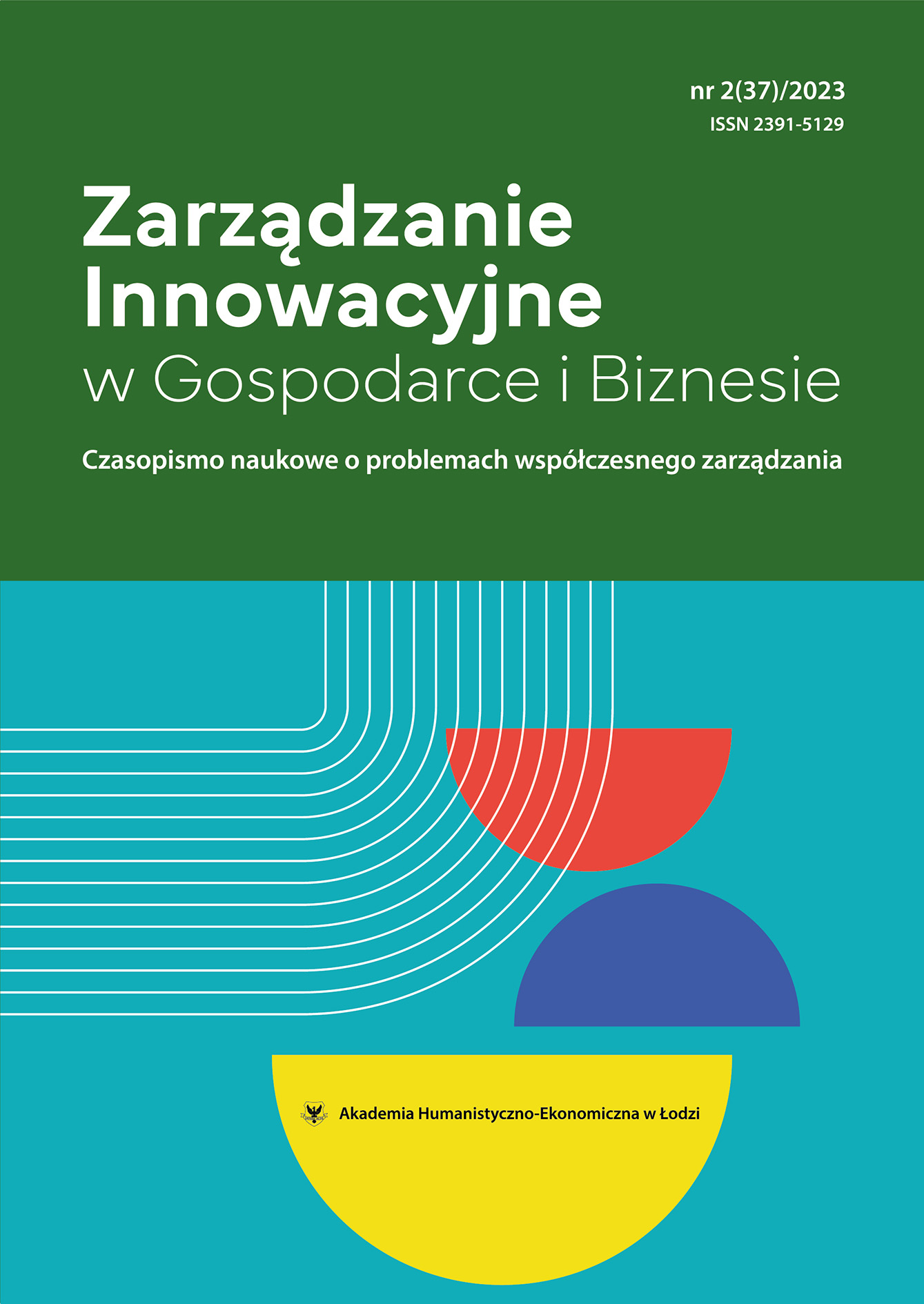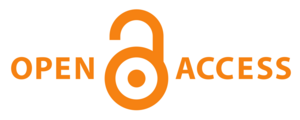Ocena wpływu ustawy o ograniczaniu inflacji Stanów Zjednoczonych z 2022 r. na międzynarodowych producentów samochodów na przykładzie Volkswagena
DOI:
https://doi.org/10.25312/2391-5129.37/2023_02FGMFSłowa kluczowe:
ustawa o ograniczaniu inflacji, międzynarodowi producenci samochodów, Volkswagen, studium przypadkuAbstrakt
Ustawa o redukcji inflacji, uchwalona przez Kongres USA w 2022 r., to główny plan inwestycyjny dotyczący zmian klimatycznych, w ramach którego przeznacza się prawie pół biliona dolarów na inicjatywy klimatyczne i opiekę zdrowotną. Kluczowym aspektem ustawy o ograniczaniu inflacji jest dotowanie pojazdów elektrycznych w oparciu o określone kryteria, które wymagają w szczególności produkcji krajowej. Tylko dziewięciu producentów samochodów, w tym jeden międzynarodowy – Volkswagen, znalazło się na liście producentów samochodów zatwierdzonych do dotacji. Wykluczenie zagranicznych producentów wywołało kontrowersje. Włączenie Volkswagena dało mu ogromną przewagę konkurencyjną. W niniejszym studium przypadku za pomocą analizy SWOT zbadano wpływ ustawy o ograniczaniu inflacji na biznes międzynarodowy związany z branżą motoryzacyjną, w szczególności na Volkswagena. Przeanalizowano kryteria kwalifikowalności dotacji na pojazdy elektryczne, koncentrując się na produkcji i komponentach w USA. Analiza SWOT bada mocne i słabe strony Volkswagena, szanse i zagrożenia w kontekście IRA.
Pobrania
Bibliografia
Aichner T., Coletti P., Jacob F., Wilken R. (2021), Did the Volkswagen emissions scandal harm the “made in Germany” image? A cross-cultural, cross-products, cross-time study, “Corporate Reputation Review”, no. 24(4), pp. 179–190, https://doi.org/10.1057/s41299-020-00101-5 DOI: https://doi.org/10.1057/s41299-020-00101-5
Belke A., Gros D. (2021), The slowdown in trade: end of the “globalisation hype” and a return to normal?, “Journal of Economics and Finance”, no. 45(2), pp. 225–239, https://doi.org/10.1007/s12197-019-09498-0 DOI: https://doi.org/10.1007/s12197-019-09498-0
Bernoth K., Meyer J. (2023), US Inflation Reduction Act demands quick strategic action from the EU, https://doi.org/10.18723/DIW_DWR:2023-6-1
Bowman R.J. (2022), Why China is winning the race for dominance in EV production, “Supply.Chain.Brain”, no. 26(4), pp. 30–31.
Bown C.P. (2023), Industrial Policy for Electric Vehicle Supply Chains and the Us-Eu Fight Over The Inflation Reduction Act, “SSRN Electronic Journal”, no. 23(1), https://doi.org/10.2139/ssrn.4449020 DOI: https://doi.org/10.2139/ssrn.4449020
Bunel S., Hadjibeyli B. (2021), An evaluation of the innovation tax credit, “Economie & Statistique”, no. 526–527, pp. 113–135, https://doi.org/10.24187/ecostat.2021.526d.2055 DOI: https://doi.org/10.24187/ecostat.2021.526d.2055
Credits for new clean vehicles purchased in 2023 or after (2023), Irs.gov, https://www.irs.gov/credits-deductions/credits-for-new-clean-vehicles-purchased-in-2023-or-after [access: 13.05.2023].
Czajka J.L. (2013), Translating modified adjusted gross income (MAGI) to current monthly income, “SHARE”, no. 3, pp. 1–9.
David F.R., Creek S.A., David F.R. (2019), What is the key to effective SWOT Analysis, including AQCD factors, “S.A.M. Advanced Management Journal”, no. 84(1), pp. 25–35.
Der neue ID. 2all (2023), Volkswagen.de https://www.volkswagen.de/de/elektrofahrzeuge/elektrofahrzeugkonzepte/ID2-for-all.html [access: 21.05.2023].
Federal Tax Credits for Plug-in Electric and Fuel Cell Electric Vehicles Placed into Service on or after April 18, 2023 (2023), Irs.gov, https://www.irs.gov/pub/irs-utl/clean-vehicle-credit-30d-after-4-17-2023.pdf [access: 13.05.2023].
Finanzlage – Volkswagen Konzern Geschäftsbericht 2021 (2022), Volkswagen Konzern Geschäftsbericht 2021, https://geschaeftsbericht2021.volkswagenag.com/konzernlagebericht/ertrags-finanz-und-vermoegenslage/finanzlage.html [access: 20.05.2023].
Gardner R., Welch J. (2023), The Inflation Reduction Act’s Residential and Vehicle Energy Credits, “Journal of Financial Planning”, no. 36(4), pp. 44–47.
General Motors Co. (2023), Deutsche Börse AG, https://www.boerse-frankfurt.de/equity/general-motors-co [access: 21.05.2023].
Geschäftsbericht 2022 (2023), Volkswagen AG, https://www.volkswagenag.com/presence/investorrelation/publications/annual-reports/2023/volkswagen/Y_2022_d.pdf [access: 20.05.2023].
Gleason W. (2022), Critical minerals mining gets a boost, “Mining Engineering”, no. 74(9), pp. 72–72.
Größte Automobilhersteller nach Fahrzeugabsatz 2022 (2023), Statista, https://de.statista.com/statistik/daten/studie/173795/umfrage/automobilhersteller-nach-weltweitem-fahrzeugabsatz [access: 21.05.2023].
Harden B. (2023), The road ahead: Vehicle and related credits from the Inflation Reduction Act, “Journal of Financial Service Professionals”, no. 77(3), pp. 12–15.
Hennessy J. (2017), Why Dunkin’ donuts is dropping the “donuts.”, Fortune, https://search.ebscohost.com/login.aspx?direct=true&db=bsu&AN=124531622&site=ehost-live [access: 14.02.2024]
Holtermann F. (2023), US-Finanzministerium streicht Steuererleichterung für Autobauer, “Handelsblatt”, https://www.handelsblatt.com/politik/international/inflation-reduction-act-us-finanzministerium-veroeffentlicht-liste-der-gefoerderten-elektroautos-bmw-und-mercedes-profitieren-nicht-vw-muss-zittern/29099128.html [access: 14.02.2024].
Hopkins J.M. (2011), Clarifying head of household issues, “The CPA Journal”, no. 81(10), pp. 42–46.
Kess S. (2022), Tax changes in the inflation reduction act of 2022, “The CPA Journal”, no. 92(11/12), pp. 6–7.
Kleinig J. (2021), Patriotism in the age of trump, “Journal of Social Philosophy”, no. 52(3), pp. 393–402, https://doi.org/10.1111/josp.12437 DOI: https://doi.org/10.1111/josp.12437
Krings T. (2019), Strategische Unternehmensfuhrung: Von Der Analyse Zur Implementierung, Kohlhammer, Stuttgart. DOI: https://doi.org/10.17433/978-3-17-037067-8
Ladedauer und Reichweite von Elektroautos (2023), The Mobility House, https://www.mobilityhouse.com/de_de/ratgeber/ladezeitenuebersicht-fuer-elektroautos [access: 20.05.2023].
Lavrakas D. (2023), 3 Billion Tons of Minerals and Metals: The IRA aims to jump-start mining at home to meet the demand, “Alaska Business Monthly”, no. 39(2), pp. 22–26.
Lee J. (2023), How a Biden legislative achievement jeopardized relations with South Korea, Diplomat, 99, C181–C184.
Lieferkette und menschenrechte (2023), Volkswagen AG, https://www.volkswagenag.com/presence/nachhaltigkeit/documents/sustainability-report/2022/chapters/Kapitel_Lieferkette_dt.pdf [access: 20.05.2023].
Lienert P., Gomes N. (2023), Ford sees $3 billion pretax loss in its EV business this year, Reuters, https://www.reuters.com/business/autos-transportation/ford-sees-3-billion-pretax-loss-its-ev-business-this-year-2023-03-23/ [access: 14.05.2023].
Luscombe M.A. (2023), Proposed regulations for the Clean Vehicle Credit, “Accounting Today”, no. 37(5), pp. 36–37.
Marcu L., Radulescu S.C. (2021), Marketing communication on the launch of a new brand of electric car. The case of Dacia Spring, “Annales Universitatis Apulensis Series Oeconomica”, no. 23(1), pp.132–144, https://doi.org/10.29302/oeconomica.2021.23.1.13
Mariasiu F., Chereches I.A., Raboca H. (2023), Statistical analysis of the interdependence between the technical and functional parameters of electric vehicles in the European market, “Energies”, no. 16(7), 2974, https://doi.org/10.3390/en16072974 DOI: https://doi.org/10.3390/en16072974
Nagl A. (2020), Der Businessplan: Geschäftspläne professionell erstellen Mit Checklisten und Fallbeispielen (10th ed.), Springer Gabler, Wiesbaden. DOI: https://doi.org/10.1007/978-3-658-30924-4
Nishimoto A. (2023), 2023 Volkswagen ID.4, Edmunds, https://www.edmunds.com/volkswagen/id4/ [access: 21.05.2023].
Paravano J.H. (2022), Tax implications of the new Inflation Reduction Act, “Journal of Taxation of Investments”, no. 40(1), pp. 3–15.
Preiss A. (2022), Die größten Automobilhersteller weltweit – Eine Analyse wichtiger Finanzkennzahlen Januar – Dezember 2021, https://assets.ey.com/content/dam/ey-sites/ey-com/de_at/news/2019/12/ey-automotive-analyse-q3-2019.pdf?download [access: 21.05.2023].
Pritchard T. (2022), The Average Price Of An Electric Car Just Rose To $66K: The average cost of an electric car just went up -- how much of a problem is that?, “Twice: This Week in Consumer Electronics”, no. 37(9), pp. 22–23.
Saylor J.F. (2022), The road to transportation justice: Reframing auto safety in the SUV age, “University of Pennsylvania Law Review”, no. 170(2), pp. 487–522.
Schinnerl R. (2018), Erfolgreich in die Selbstständigkeit: Von der Geschäftsidee über den Businessplan zur nachhaltigen Unternehmensgründung (1st ed.), Springer Fachmedien, Wiesbaden. DOI: https://doi.org/10.1007/978-3-658-22111-9_1
Schneider M.C. (2016), Volkswagen: Eine deutsche Geschichte, Berlin Verlag, Berlin.
Semega J., Kollar M. (2022), Income in the United States: 2021. Current Population Reports, U.S. Government Publishing Office, Washington.
Springel K. (2021a), It’s not easy being “green”: Lessons from Norway’s experience with incentives for electric vehicle infrastructure, “Review of Environmental Economics and Policy”, no. 15(2), pp. 352–359, https://doi.org/10.1086/715549 DOI: https://doi.org/10.1086/715549
Springel K. (2021b), Network externality and subsidy structure in two-sided markets: Evidence from electric vehicle incentives, “American Economic Journal. Economic Policy”, no. 13(4), pp. 393–432, https://doi.org/10.1257/pol.20190131 DOI: https://doi.org/10.1257/pol.20190131
Trade (% of GDP) (2023), The World Bank, https://data.worldbank.org/indicator/NE.TRD.GNFS.ZS?end=2021&name_desc=true&start=2012&view=chart [access: 13.05.2023].
Trump R.K., Newman K.P. (2017), When do unethical brand perceptions spill over to competitors?, “Marketing Letters”, no. 28(2), pp. 219–230, https://doi.org/10.1007/s11002-016-9409-y DOI: https://doi.org/10.1007/s11002-016-9409-y
Volkswagen returns to the U.S. with a state-of-the-art auto plant (2020), “SupplyChainBrain”, no. 24(3), pp. 10–11.
Williams M. (2019), Volkswagen to open cross-brand packaging facility in Wilhelmshaven, “Automotive Logistics”, p. 7.
Pobrania
Opublikowane
Numer
Dział
Licencja
Prawa autorskie (c) 2024 Akademia Humanistyczno-Ekonomiczna w Łodzi

Utwór dostępny jest na licencji Creative Commons Uznanie autorstwa – Na tych samych warunkach 4.0 Miedzynarodowe.



